
Molds & Accessories
Square Lab Press Mold for Laboratory Applications
Item Number : PMS
Price varies based on specs and customizations
- Material
- Cr12MoV
- Indenter hardness
- HRC60-HRC62
- Cavity depth
- 20-60 mm
Shipping:
Contact us to get shipping details Enjoy On-time Dispatch Guarantee.
Why Choose Us
Easy ordering process, quality products, and dedicated support for your business success.
Applications
Square Lab Press mold are suitable for some easy-to-form slender strip samples, we have a complete range of mold sizes, The accessories are interchangeable.
The mold is widely used in battery, superconductor, cement, ceramics, catalysis, silicate, powder metallurgy, sea mud analysis, biochemical analysis and new material sample preparation research and development. In addition, the product can also be used with calcium iron, infrared, X-ray fluorescence and other testing instruments.
The mold is made of Japanese high-speed steel, high hardness, no deformation, long service life.
Special sizes press molds can be customized according to customer requirements.
Detail & Parts
![Square mold [width 3-10mm]](https://image.kindle-tech.com/images/products/117/bd9729f02715a3045381ad980dbc8cbe67bc0efccdc4d.jpg)
![Square mold [width 11-20mm]](https://image.kindle-tech.com/images/products/117/77b0ad92257e27985c1074d565365be867bc0f718c1ce.jpg)
![Square mold [width 21-30mm]](https://image.kindle-tech.com/images/products/117/7a7f5097149e73ba9e9dd8119734b87867bc0f1b442e4.jpg)
![Square mold [width 31-40mm]](https://image.kindle-tech.com/images/products/117/f932745a90921d82ba9972b3e047c11867bc0fda132e7.jpg)
![Square mold [width 41-80mm]](https://image.kindle-tech.com/images/products/117/114d7fa94a78f164488222feed2f5b5267bc1030bc83b.jpg)
![Splicing square mold [width 81-150mm]](https://image.kindle-tech.com/images/products/117/98bf89fc724eae63a397d960edcca07267bc114d374b1.jpg)
![Splicing square mold [width 151-200mm]](https://image.kindle-tech.com/images/products/117/bc083a9f11ac4995e1ca0007f1d1350b67bc117583cfc.jpg)



Technical specifications
| Model | PMS-A | PMS-B | PMS-C | PMS-D | PMS-E | PMS-F | PMS-G |
| Material | Cr12MoV | ||||||
| Indenter hardness | HRC60-HRC62 | ||||||
| Sample size | 3×3 /4×4 /5×5 /6×6 /8×8 /10×10 mm | 12×12 /15×15 /16×16 /18×18 /20×20 mm | 22×22 /25×25 /30×30 mm | 32×32 /35×35 /40×40 mm | 50×50 /60×60 /70×70 mm | 81-150 mm(long side) | 151-200 mm(long side) |
| Cavity depth | 20 mm | 30 mm | 40 mm | 45 mm | 55/60/65 mm | 60 mm | 60 mm |
| External dimensions | φ43×93mm | φ53×120mm | φ73×133mm | φ88×150mm | φ98×150mm/φ118×180mm/φ138×180mm | 160×140mm | 220×160mm |
| Weight(Kg) | 0.65 | 1.2 | 2.4 | 4.8 | 7.3/11.4/20 | 25kg-40kg | 45kg-80kg |
| Other sizes can be customized | |||||||
Operation steps
Rectangular mold is suitable for some samples that are easy to form and slender strip. Simple structure and easy operation.

Step 1: Assemble the die according to the operation diagram and install the sample in the cavity.

Step 2: Put the die in the center of the hydraulic press and pressurize to required pressure.

Step 3: Assemble the die according to the release diagram ,eject the sample out of the die bushing with the screw rod.

Step 4: Take out the die from the hydraulic press , and remove the sample gently.
Precautions for mold maintenance
To ensure accurate test results, clean the mold surface with dust-free paper before each use to avoid the anti-rust oil from affecting the sample. Avoid exceeding the maximum pressure when applying pressure. Clean the mold and samples after use to prevent corrosion. Apply anti-rust oil and store the mold in a dry environment if not used for a long time to prevent damage.
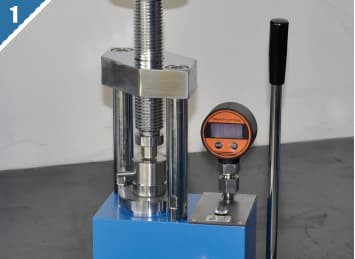
Step 1: Placing the Mold.
To begin, place the mold in the center of the tablet press. It is important to note that the maximum pressure of the mold cannot be exceeded when pressurized. This will prevent any damage to the mold and ensure accurate test results.

Step 2: Cleaning the Mold.
After each use, it is essential to clean the mold to prevent any contamination of the sample. Using dust-free paper, wipe the surface of the mold clean. If there are sample residues on the surface that cannot be removed, please do not use chemical reagents to clean and soak. This could potentially damage the mold and impact the accuracy of the test results.

Step 3: Applying Anti-Rust Oil.
If the mold is not used for an extended period, it is recommended to apply anti-rust oil on the surface of the mold to prevent rusting. This step will help prolong the life of the mold and ensure that it remains in good condition for future use.

Step 4: Storing the Mold.
Lastly, if the mold is not used for a long time, it needs to be stored in a dry environment. This will prevent any moisture from accumulating on the mold and causing damage.
Full range of lab press types
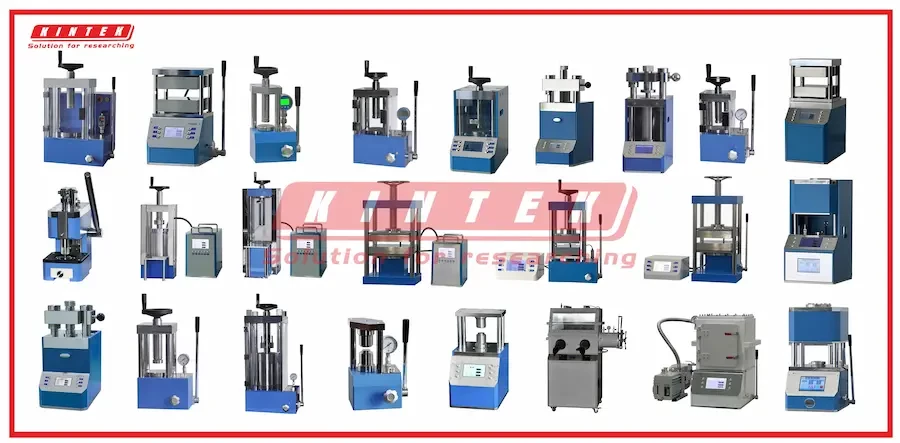
Click to view our full range of lab press products.
Any question? Our experts have helped many laboratories choose their lab press, contact us now!
Full range of types of laboratory press molds
We have a full range of molds for you to choose from, and the molds fit the body perfectly.
If you need molds with special shapes, we can also customize them for you.
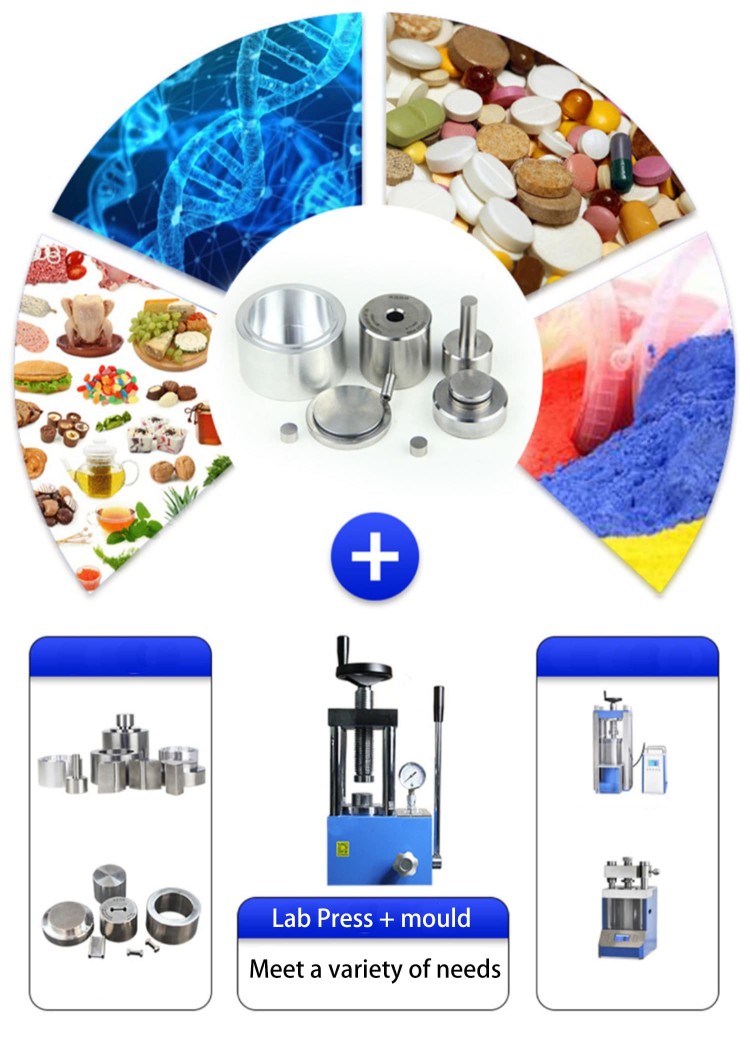
Warnings
Operator safety is the top important issue! Please operate the equipment with cautions. Working with inflammable& explosive or toxic gases is very dangerous, operators must take all necessary precautions before starting the equipment. Working with positive pressure inside the reactors or chambers is dangerous, operator must fellow the safety procedures strictly. Extra caution must also be taken when operating with air-reactive materials, especially under vacuum. A leak can draw air into the apparatus and cause a violent reaction to occur.
Designed for You
KinTek provide deep custom made service and equipment to worldwide customers, our specialized teamwork and rich experienced engineers are capable to undertake the custom tailoring hardware and software equipment requirements, and help our customer to build up the exclusive and personalized equipment and solution!
Would you please drop your ideas to us, our engineers are ready for you now!
Trusted by Industry Leaders

FAQ
What Is A Press Mold?
What Is Press Mould In Ceramics?
How Are Pellet Molds Used?
What Types Of Materials Can Be Pelletized Using Pellet Molds?
How Can One Select The Appropriate Pellet Mold For Their Specific Application?
4.9 / 5
The delivery was so fast! I ordered it on Monday and got it on Wednesday. The quality is amazing and I can't wait to use it.
4.8 / 5
I have been using this mold for a few weeks now and I am very impressed with the results. It's easy to use and produces high-quality samples.
4.7 / 5
This mold is a great value for the money. It's made of high-quality materials and it's very durable. I expect it to last for many years.
5.0 / 5
I'm very happy with this mold. It's easy to use and it produces consistent results. I would definitely recommend it to other lab managers.
4.9 / 5
This mold has helped me to improve the quality of my samples. It's a great investment for any lab.
4.8 / 5
I'm very impressed with the technological advancements of this mold. It's a great tool for modern laboratory work.
4.7 / 5
This mold is a great addition to my lab. It's very versatile and can be used for a variety of applications.
5.0 / 5
I'm very happy with this mold. It's easy to use and it produces high-quality samples. I would definitely recommend it to other lab managers.
4.9 / 5
This mold is a great value for the money. It's made of high-quality materials and it's very durable. I expect it to last for many years.
4.8 / 5
I'm very impressed with the technological advancements of this mold. It's a great tool for modern laboratory work.
4.7 / 5
This mold is a great addition to my lab. It's very versatile and can be used for a variety of applications.
5.0 / 5
I'm very happy with this mold. It's easy to use and it produces high-quality samples. I would definitely recommend it to other lab managers.
REQUEST A QUOTE
Our professional team will reply to you within one business day. Please feel free to contact us!
Related Products
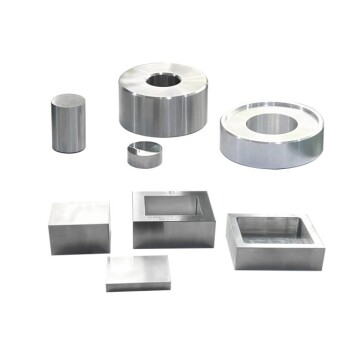
Special Heat Press Mold for Lab Use
Square, round and flat plate forming dies for hot presses.
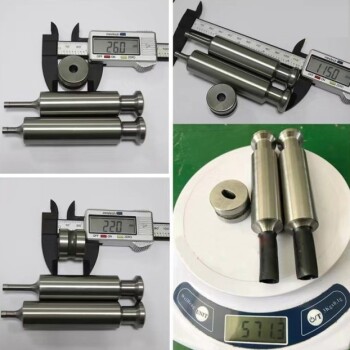
Multi-Punch Rotary Tablet Press Mold Ring for Rotating Oval and Square Molds
The multi-punch rotary tablet press mold stands as a pivotal component in pharmaceutical and manufacturing industries, revolutionizing the process of tablet production. This intricate mold system comprises multiple punches and dies arranged in a circular fashion, facilitating rapid and efficient tablet formation.

Double Plate Heating Press Mold for Lab
Discover precision in heating with our Double Plate Heating Mold, featuring high-quality steel and uniform temperature control for efficient lab processes. Ideal for various thermal applications.
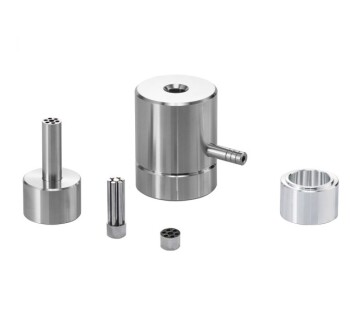
Special Shape Press Mold for Lab
Discover high-pressure special shape press molds for diverse applications, from ceramics to automotive parts. Ideal for precise, efficient molding of various shapes and sizes.
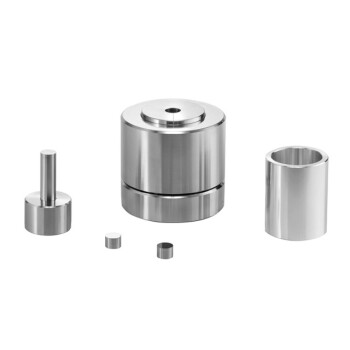
Assemble Lab Cylindrical Press Mold
Get reliable and precise molding with Assemble Lab Cylindrical Press Mold. Perfect for ultra-fine powder or delicate samples, widely used in material research and development.
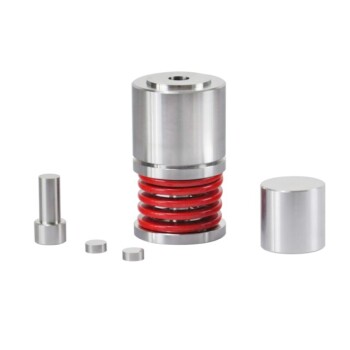
Round Bidirectional Press Mold for Lab
The round bidirectional press mold is a specialized tool used in high-pressure molding processes, particularly for creating intricate shapes from metal powders.

XRF Boric Acid Lab Powder Pellet Pressing Mold for Laboratory Use
Get accurate results with our XRF Boric Acid lab Powder Pellet Pressing Mold. Perfect for preparing samples for X-ray fluorescence spectrometry. Custom sizes available.
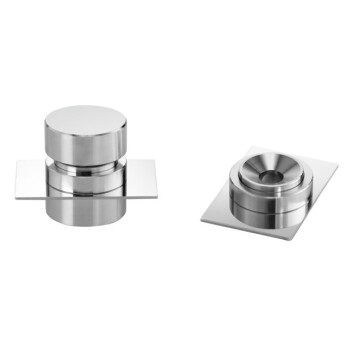
No Demolding Lab Infrared Press Mold for Laboratory Applications
Effortlessly test your samples with no demolding required using our lab infrared press mold. Enjoy high transmittance and customizable sizes for your convenience.

Platinum Sheet Electrode for Laboratory and Industrial Applications
Elevate your experiments with our Platinum Sheet Electrode. Crafted with quality materials, our safe and durable models can be tailored to fit your needs.

High Energy Planetary Ball Mill Milling Machine for Laboratory
The biggest feature is that the high energy planetary ball mill can not only perform fast and effective grinding, but also has good crushing ability
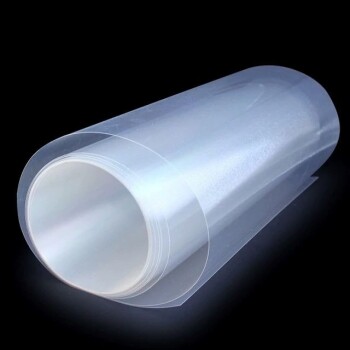
Proton Exchange Membrane for Batteries Lab Applications
Thin proton exchange membrane with low resistivity; high proton conductivity; low hydrogen permeation current density; long life; suitable for electrolyte separators in hydrogen fuel cells and electrochemical sensors.
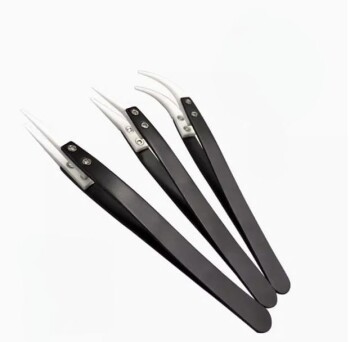
Engineering Advanced Fine Ceramics Head Tweezers with Pointed Elbow Zirconia Ceramic Tip
Zirconia ceramic tweezers are a high-precision tool made of advanced ceramic materials, especially suitable for operating environments that require high precision and corrosion resistance. This type of tweezers not only has excellent physical properties, but is also popular in the medical and laboratory fields because of its biocompatibility.
Related Articles

Ceramic Isostatic Pressing Mold Technology
Exploring the design and factors affecting ceramic isostatic pressing molds.

Classification of tablet press molds and precautions for use
During the stamping process.A stamping die is a tablet press die that compresses a sample or tablet during the stamping process. The stamping die is placed on top of the tablet press and the sample is placed on top of the die. The die is then compression molded to the desired shape and size. here are some classification of tablet press molds and precautions for use.

Pressing Powder Samples and Molding Polymer Films: A Comprehensive Guide
Pressing powder samples is done to create a solid material that remains intact even after the load is removed. This process involves pushing the powder grains closer together, closing the gaps between them and forcing them to flow and rearrange themselves into a more compact arrangement. As the available volume reduces, the flow of particles stops, and they undergo plastic and elastic deformations that result in bonding between the grains.

Comprehensive Guide to Isostatic Pressing Molds: Types, Processes, and Applications
Explore the detailed world of isostatic pressing molds, including types like wet bag and dry bag, their processes, and applications. Learn how these molds ensure uniform density and high-strength products.

The Benchtop KBr Pellet Press: An Efficient Tool for Laboratory Use
The benchtop KBr pellet press is a versatile and efficient tool that produces uniform pellets, ensuring consistent and reliable results. In addition, its adjustable mold can be used flexibly to accommodate a variety of sample sizes and shapes.

Operating of Automatic Lab xrf Pellet Press
How to use the Automatic Lab xrf Pellet Press, including steel ring, plastic ring, boric acid mold

Understanding the Importance and Applications of Laboratory Presses
Laboratory presses play a vital role in various industries, providing precision and consistency in demanding operations. These versatile machines are used for testing, compacting, and molding materials in sectors such as pharmaceutical, laminating, rubber, and plastic molding. Whether it's for R&D, limited production, or lean manufacturing, laboratory presses offer durability and rigorous demand fulfillment.

CIP vs. Metal Mold Pressing What's the Difference
CIP and Metal Mold Pressing are used to create high-density components, but they differ in terms of the level of complexity required and the final outcome. Understanding these differences can help manufacturers determine which method is best suited for their needs.

How To Turn XRF analysis sample preparation Into Success
In X-ray fluorescence (XRF) analysis, sample preparation is an important step because it can significantly impact both the quality and the efficiency of the analysis.

The working process of the tablet press you should know
What is tablet press and the working process of tablet press.

Silicone Sponge: An Essential Component for Heat Press Machines
One essential component of a heat press machine is the silicone sponge. This sponge is used to distribute pressure evenly across the surface of the fabric, ensuring that the design is transferred smoothly and evenly. When a heat press machine applies pressure to the fabric, the silicone sponge helps to distribute that pressure evenly across the entire surface of the fabric. This ensures that the design is transferred smoothly and evenly, without any wrinkles or creases.

The Role of a Porcelain Furnace in Dental Restorations
Porcelain furnaces play a crucial role in the creation of dental restorations, as they are used to fire ceramic materials, such as porcelain, to create durable and natural-looking dental prosthetics.